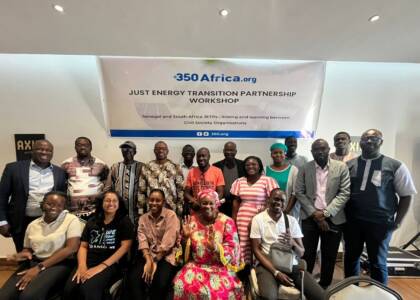Case Study: How 350.org Mobilized Millions for Climate Action
Introduction
In a world increasingly aware of the dire consequences of climate change, 350.org stands as a monumental force in mobilizing millions globally for environmental action. Founded in 2008 by a group of university friends in the United States, led by author and environmentalist Bill McKibben, the organization has since grown into one of the most influential grassroots movements dedicated to combating climate change. This case study explores how 350.org successfully harnessed the power of community engagement, digital activism, and on-the-ground organizing to rally global support for climate action.

Background
350.org’s name is derived from the scientific consensus that 350 parts per million (ppm) is the safe upper limit for CO2 in the atmosphere. However, current levels exceed this, standing at over 420 ppm, signaling an urgent need for action. The organization’s mission is to reduce carbon dioxide in the atmosphere to below this threshold, advocating for a transition to renewable energy and an end to fossil fuel dependence.
Strategy and Approach
- Grassroots Mobilization: From the outset, 350.org recognized the power of grassroots activism. The organization leveraged local networks, encouraging individuals and groups to organize events in their communities. This decentralized approach empowered local leaders and made climate activism accessible to everyone, regardless of location.
- Digital Activism: Understanding the reach and influence of the internet, 350.org utilized digital platforms to spread its message. Social media campaigns, online petitions, and virtual events allowed the organization to engage with a global audience, transcending geographical barriers. Their online presence became a crucial tool in amplifying the climate movement.
- Global Day of Action: One of 350.org’s most notable achievements was organizing the International Day of Climate Action in 2009. The event saw participation from over 5,200 actions in 181 countries, making it the most widespread day of environmental action in history. This event demonstrated the power of coordinated global efforts and solidified 350.org’s reputation as a leader in climate activism.
- Partnerships and Alliances: Recognizing the strength in numbers, 350.org formed strategic partnerships with other environmental organizations, NGOs, and community groups. These alliances amplified their message and helped to mobilize even more supporters. Collaborations with indigenous communities, in particular, highlighted the intersections of climate justice and social justice, broadening the movement’s appeal.
- Non-Violent Direct Action: 350.org has consistently promoted non-violent direct action as a means of protest. High-profile campaigns, such as the “Keystone XL Pipeline” protests, saw thousands of activists risking arrest to halt environmentally destructive projects. These actions drew significant media attention and pressured policymakers to consider environmental impacts more seriously.
Outcomes
The success of 350.org’s campaigns can be measured by the millions of people who have been mobilized to take climate action, the policies that have been influenced, and the global awareness that has been raised about the urgency of climate change. Their efforts contributed to the eventual rejection of the Keystone XL Pipeline and have played a role in shifting public perception toward the necessity of a renewable energy transition.
Lessons Learned
- Empowerment Through Decentralization: Allowing local leaders to take charge of their own communities’ climate actions led to a more resilient and adaptable movement.
- The Power of Digital Tools: Effective use of digital platforms can exponentially increase reach and impact, especially for global movements.
- Collaboration and Inclusivity: Partnering with diverse groups ensures that the movement addresses various aspects of climate justice, making it more inclusive and stronger overall.
Conclusion
350.org’s success in mobilizing millions for climate action serves as a blueprint for future environmental movements. Their ability to inspire collective action through grassroots mobilization, digital activism, and strategic partnerships underscores the importance of a multifaceted approach in addressing global challenges. As the world continues to grapple with the realities of climate change, the lessons from 350.org’s journey remind us that significant change is possible when communities unite for a common cause.
At Sustainability Unscripted, we celebrate the stories of organizations like 350.org that are making a tangible impact on our planet’s future. We are committed to supporting and sharing the innovative strategies that pave the way for a sustainable tomorrow.
